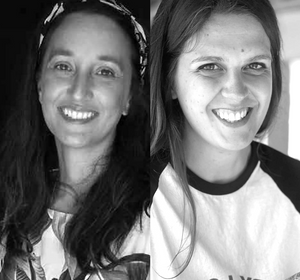
Convenor: Marta Pimentel (University of Lisbon)
Over the last years, I have developed research on climate change and ecophysiology fields and seek to understand how future environmental changes affect marine biodiversity. As a Junior Researcher at MARE – Marine and Environmental Sciences Centre, Faculty of Science, University of Lisbon (Portugal) I am eager and highly motivated to contribute for better climate change research and to support policies for sustainable management strategies to protect marine biodiversity in changing oceans.
Deputy Convenor: Sophie Dupont (CEFE, France & CIBIO, Portugal)
I am concerned about the human print on surrounding vertebrates in the current changing world. Then, I have been involved in research projects aimed at discovering how variable/unpredictable/constraining environmental conditions influence individuals’ quality (using ecophysiological and behavioral markers) and shape their life-history decisions. Since January 2024, I’m a BIOPOLIS postdoctoral researcher at the Centre d’Ecologie Fonctionnelle et Evolutive (CEFE, France)/Centro de Investigação em Biodiversidade e Recursos Genéticos (CIBIO, Portugal), working on the effect of a fire event on telomere dynamics in the Sociable weaver.
Group description:
The exciting and emerging field of conservation physiology explores the physiological responses of organisms to anthropogenic -induced environmental change and attempts to determine the possible threats imposed by current and future conditions. Underpinned by ecological and physiological theory, conservation physiology takes a multidisciplinary and integrative approach that encompasses both field and laboratory-based research. It aims to determine and assess abiotic and biotic factors that impact upon the physiology and fitness of organisms providing the ability to both assess and forecast the responses of organisms to environmental change. Ultimately, conservation physiologists aim to assist in determining the degree of threat to organisms and so help to set priority areas for conservation action and management.
A key objective of this group is to bring physiologists, ecologists and conservation biologists together that have an interest in studies that are assessing and predicting the impacts of current and future human-induced environmental change on organisms.
The SEB together with Oxford University Press have seen a growing need for a scientific journal to cover this rapidly growing field. The journal Conservation Physiology was launched in 2014 and is now the leading journal in this area.
